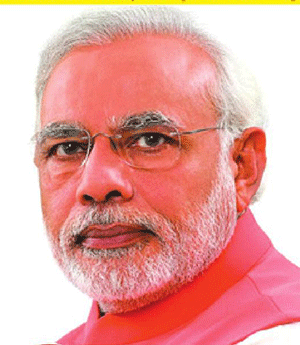 Roshan -
Roshan -
IT speaks volumes on the part of Pakistan’s successful foreign policy and vibrant diplomacy that UN Office of the High Commissioner for Human Rights (OHCHR) has published a report on the Human Rights violations by India on Indian held Kashmir. Report has been endorsed by the UN Secretary General. Indian government made strenuous efforts to prevent it from going public. Indian allegations regarding the report have also been firmly rejected by the OHCHR in a detailed response. This is a milestone, which has been achieved as a result of relentless efforts of our diplomats around the world. Pakistan has welcomed report’s recommendations for establishing Commission of Inquiry in both Azad Jammu and Kashmir and Indian occupied Kashmir, to ascertain the facts on ground.
Since the report was published, international community has been deeply disappointed by the reaction of the Indian authorities, who dismissed the report without examining it. India has out rightly dismissed the report terming it “fallacious, tendentious, and motivated,” commenting that the findings are “overtly prejudiced” and seek to “build a false narrative.” Addressing grievances is what responsible governments are supposed to do. They don’t deny and shoot the messenger. India is rehearsing to be a super power and in this regard, as a matter of policy, it comically imitates all irrational acts of the United States; UN bashing is just one such example. While rejecting Indian allegations about the report, the OHCHR commented. “Since the report was published, we have been deeply disappointed by the reaction of the Indian authorities, who dismissed the report as fallacious, tendentious and motivated without examining it and responding to the very serious concerns about the human rights situation.”
Report has extensively quoted Indian sources including their Parliament, Supreme Court and Ministry of External Affairs. After the report was published, the Indian government and media shamelessly termed the report as “Pakistan authored” and a “nefarious conspiracy” against India. Meenakshi Ganguly, South Asia Director of Human Rights Watch has stated that “India can – and should – do better in confronting its own human rights failures. These human rights concerns have been well documented”. The Kashmir report has brought to light “impunity for human rights violations and lack of access to justice” with regard to human rights challenges in the IoK. “Special laws in force in the state, such as the Armed Forces Special Powers Act, 1990 (AFSPA) and the Jammu and Kashmir Public Safety Act, 1978 (PSA) have created structures that obstruct normal course of law, impede accountability and jeopardize the right to remedy for victims of human rights violations.”
According to the report, over 1,000 people were detained under PSA between March 2016 and August 2017 including minors. “During the 2016 unrest, there were numerous reports of attacks on and obstruction of basic medical services that had a severe impact on the injured and general civilian population in Kashmir held by India. Days-long curfews and communication blockades had a cumulative impact on students and their right to education”. And, “In 2016, the authorities imposed restrictions on freedom of expression by targeting the media and journalists”, Report added. The report also found that Indian military courts and tribunals were a hindrance to justice and highlighted administrative detention used by the Indian authorities in IoK to “circumvent the protections of ordinary criminal procedure. Introduced in 1978 to primarily deal with timber smugglers, the Jammu and Kashmir Public Safety Act, 1978 (PSA) is the most commonly used law for the purpose of administrative detention”.
The Indian government has also been criticised for the use of pellet guns. “One of the most dangerous weapons used against protesters during the unrest in 2016 was the pellet firing shotgun, which is a 12-gauge pump action shotgun that fires metal pellets. It was deployed by the Central Reserve Police Force and the Jammu and Kashmir Police against protesters, some of whom were throwing stones.” The shotgun cartridges contain 500 to 600 pellets that resemble ball bearings. The ammunition is made of a lead alloy that is fired at a high velocity thereby dispersing the metal pellets over a large area. There is no way of adequately controlling the trajectory of these shotguns beyond a limited range, which makes them inaccurate and indiscriminate. Despite the public outrage over the deaths and mass blinding caused by the use of pellet firing shotguns, the state government has only set up one special investigation into a death caused by pellet gun injuries. Authorities have failed to independently investigate and prosecute allegations of sexual violence by security forces personnel. There is no record of allegations of sexual violence by security forces being prosecuted in a civilian court.
The killing of civilians between 2016 and 2018 raises the question of whether security forces resorted to excessive use of force to respond to peaceful protesters. “International human rights groups have accused Indian security forces of using excessive force and failing to adhere to applicable national and international standards on the use of force,” Report went on to point out. The right to liberty and security includes the right not to be subjected to arbitrary arrest or detention; the right to know the reasons for one’s detention and charges, if any; the right to be brought before a judge within a reasonable time following arrest or detention; and the right to appeal to a court of law to review the arrest or detention.” As a State party to the International Covenant on Civil and Political Rights, India is obligated to ensure the principles of legality and the right to liberty and security. Prime Minter Narendra Modi! Listening the voice of international community?


